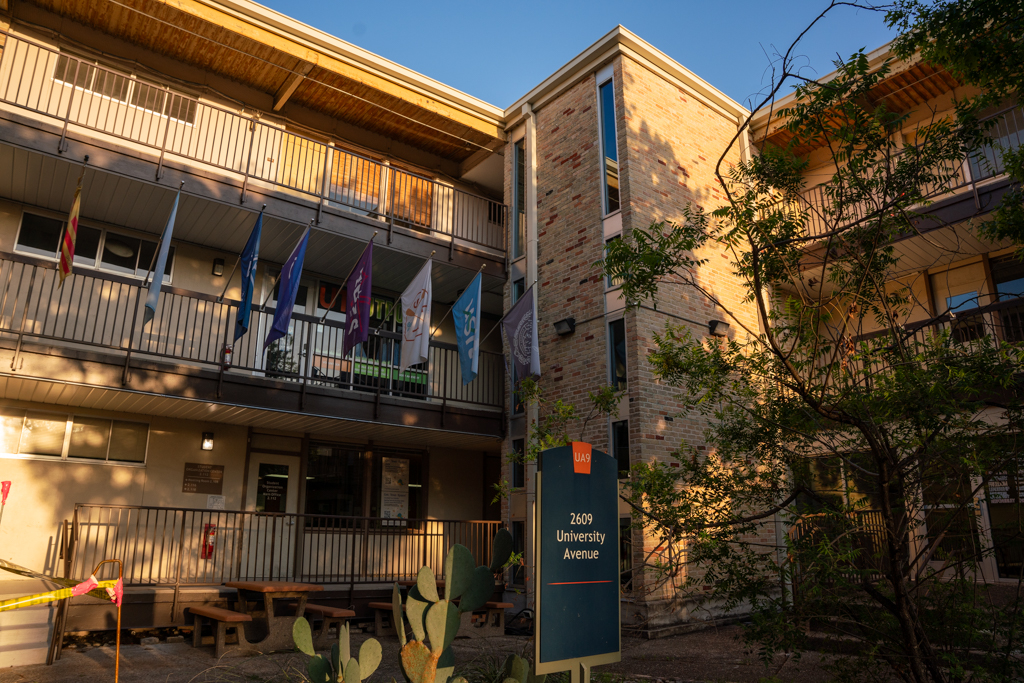A Travis County jury found Meechaiel Criner guilty of capital murder in the April 2016 death of dance freshman Haruka Weiser, sentencing him to life in prison with the possibility of parole in 40 years.
After seven days of testimony in the 167th Criminal District Court in Austin, the seven women and five men on the jury spent more than 10 hours deliberating before returning the guilty verdict Friday at 2:13 p.m.
The gallery was completely silent as members of the jury cried while confirming their decision. Haruka Weiser’s father, Thomas Weiser, then spoke directly from the stand to Criner and told him Weiser’s spirit and bright face have prevailed.
“What can a father say to the one who killed his daughter?” Weiser said. “What could possibly make a difference to you? You killed my daughter. You brutally raped her and then you mercilessly killed her. May God have mercy on your soul.”
Weiser said the parole board for Criner will need to build a new room to hold all of the letters he plans on sending to discourage them from letting Criner out on parole.
“For the rest of my life, I’ll be reminding the Texas state board of paroles and pardons that (Criner) should never be released,” Weiser said. “It’s my duty as Haruka’s father and my responsibility to the citizens of this state.”
With tears in her eyes, Joell McNew, vice president of SafeHorns, said she was incredibly grateful for the jury’s guilty verdict. SafeHorns, a coalition of parents and community members promoting increased security on campus, was founded in response to
Weiser’s death.
“I believe that he definitely had a fair trial … and I’m so grateful for the jurors,” McNew said. “I agree with her father, that I believe 100 percent that they stopped a predator … living on our campus. I’m sure it was an extremely difficult decision.”
The jury foreman, or chairman of the jury, said they took more than 10 hours to deliver a verdict because they wanted to make sure the state had proved their case beyond a reasonable doubt.
“There was just way too many things that lined up to be coincidences,” the jury foreman said. “When you combine all of the elements together, to be a coincidence at that point, it just becomes so implausible it’s unbelievable.”
Because of faulty analysis techniques by Texas Department of Public Safety analysts, presiding judge David Wahlberg ruled in June that some DNA evidence from the crime scene would not be admitted, meaning the jury ruled largely on circumstantial evidence.
Prosecutors Guillermo Gonzalez, Rickey Jones and Victoria Winkeler said the circumstantial evidence was strong enough to prove Criner intentionally strangled Weiser while also committing aggravated sexual assault, kidnapping or robbery.
“You should now know, (Criner) committed this horrific and brutal murder,” Winkeler said in her closing statement. “You don’t get a ligature and pull it so tight as to murder (a person) without intending to do so.”
The jury foreman said the most convincing piece of evidence presented by the prosecution was surveillance video of the suspect wearing an orange bandana walking toward Waller Creek in the same direction as a person prosecutors said was Weiser. The prosecution also presented a selfie of Criner wearing an orange bandana that was taken less than a week before Weiser’s death.
Defense attorneys Ariel Payan, Darla Davis and Jeremy Slaughter said Criner being found at an abandoned building with items connected to Weiser’s death only proved that Criner, a homeless 17-year-old at the time, had scavenged the items from a dumpster. When he took the stand, Criner denied all charges and said he was confused as to why he was arrested.
“This is a circumstantial evidence case,” Payan said in his closing statement. “(The prosecution wants) you to fill in the blanks. Don’t leap to those conclusions. Mick did not commit this crime.”
During the press conference after the verdict, Winkeler said the verdict was about getting justice for Weiser’s family and friends and showing everybody how special Weiser was. Weiser’s friends declined to be interviewed.
In an email sent minutes after the verdict was announced, UT President Gregory Fenves said Weiser’s memory will continue to be a source of strength for everyone at UT.
“A verdict provides some closure, but it doesn’t heal the pain or ease the sense of loss felt by Haruka’s family and all of the students, faculty members and staff members to whom she meant so much,” Fenves wrote.





















